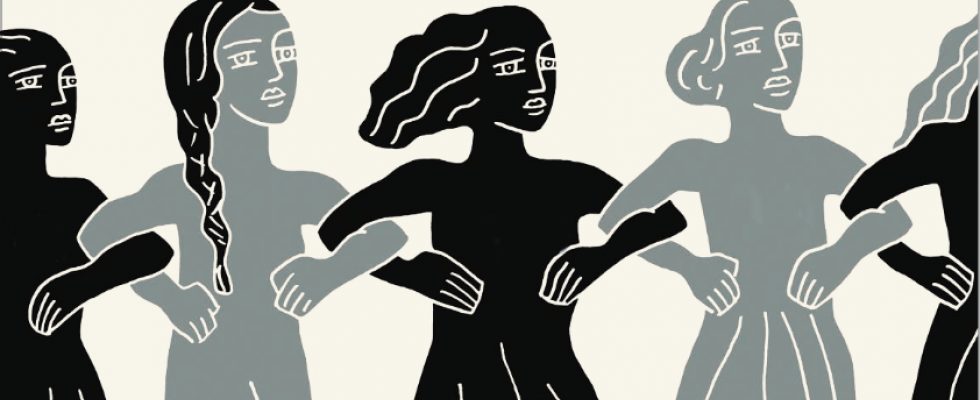Until Russia’s invasion of Ukraine, officially designated in Russia a “Special Military Operation, ”the Yugoslav Wars were the largest armed conflict on European soil since the Second World War. Thousands were killed or displaced. Gender-based violence, particularly sexual violence, was tragically commonplace. Entire libraries have been written about the women who endured it, their pain, their struggles, and in some cases, their victories.
From early on, it became clear to researchers that rape and other forms of gender-based violence were not incidental to the war but a strategic component of it. These crimes were not merely a byproduct of combat, they were systematically deployed, planned with the same deliberation as troop movements through the Bosnian wilderness or the logistics behind artillery encircling Sarajevo.
But this is not an article about those women.
This is about the others, the women who committed war crimes.
Rarely discussed in either academic literature or public discourse, female perpetrators remain a blind spot in the broader conversation about gender and war. And yet, they existed. Some were not merely complicit, but active participants in violence, humiliation, and abuse.
Their numbers were small, and their visibility even smaller. But their presence challenges dominant gender narratives that portray women exclusively as victims or peacebuilders. It complicates how we think about femininity and radical violence.
In what follows, we will briefly introduce several of these cases, not to sensationalize, but to provoke further reflection and research. If we are to take gender seriously in the analysis of war and extremism, we must be willing to confront the full spectrum of roles women can and do occupy, including those we would rather ignore.
By way of political and executive responsibility, Biljana Plavšić, former President of the Republic of Srpska, remains the only woman indicted and prosecuted by the Hague Tribunal (ICTY). Her indictment included charges of genocide, crimes against humanity, and violations of the laws or customs of war. In a plea agreement, Plavšić pleaded guilty to crimes against humanity, leading to the withdrawal of the genocide charges. She was sentenced to 11 years in prison, ultimately serving two-thirds of her sentence before early release.
Elfeta Veseli, an ethnic Albanian from Serbia, joined the Bosnian Army following the outbreak of the war, operating primarily in the broader Srebrenica region. In 1992, in the town of Zvornik, Veseli committed one of the most heinous individual crimes recorded during the conflict: the murder and mutilation of a 12-year-old Serbian boy, Slobodan Stojanović (1980–1992). Multiple witness accounts and forensic evidence confirm that Veseli executed the boy, and allegedly desecrated his remains. After the war, she relocated to Switzerland, where she lived with her family until being extradited to Bosnia. In 2019, she was found guilty of war crimes against civilians and sentenced to 13 years in prison.
Rasema Handanović, known by the nickname “Zolja,” was a member of the Army of the Republic of Bosnia and Herzegovina and participated in the Trusina massacre, in which 22 Bosnian Croat civilians and prisoners of war were executed in 1993. At the time, she was 21 years old. Years later, Handanović was arrested in the United States, where she had emigrated and acquired citizenship. On April 13, 2011, she was extradited to Bosnia and Herzegovina to face charges. As part of a plea bargain, she admitted guilt to war crimes against the civilian population and agreed to testify against other members of her unit. In return, she received a five-year prison sentence.
Elvira Hadžiomerović, a member of the Croatian Defence Council (HVO) from the Bosanska Posavina region in northwestern Bosnia, is the most recent woman to face charges of war crimes. After decades of stalled investigations and contested reports of crimes against the Serbian civilian population in the region, a local court in Odžak raised indictments in 2025 against twelve members of her unit. Hadžiomerović is accused of the physical abuse of at least four prisoners, one of whom died shortly after being released in a prisoner exchange. The case is ongoing and represents a rare attempt by local institutions to address gender-neutral responsibility for wartime atrocities.
References:
International Criminal Tribunal for the former Yugoslavia (ICTY). Prosecutor v. Biljana Plavšić – Trial Chamber Sentences Accused to 11 Years Imprisonment. https://www.icty.org/en/press/prosecutor-v-biljana-plav%C5%A1ic-trial-chamber-sentences-accused-11-years-imprisonment
International Crimes Database. Case: Prosecutor v. Biljana Plavšić (ICTY). https://www.internationalcrimesdatabase.org/Case/91
Detektor.ba. Sentence Against Elfeta Veseli for Murder of a Boy Increased to 13 Years. (Dec 2019)
https://detektor.ba/2019/12/09/sentence-against-elfeta-veseli-for-murder-of-a-boy-increased/?lang=en
Sarajevo Times. Elfeta Veseli Sentenced to Ten Years Imprisonment for War Crimes Against Civilians. (Oct 2019)
https://sarajevotimes.com/elfeta-veselji-sentenced-to-ten-years-imprisonment-for-war-crimes-against-civilians
Reuters. Bosnian War Crimes Court Jails First Woman War Criminal. (March 2012)
https://www.reuters.com/article/world/bosnian-war-crimes-court-jails-first-woman-idUSBRE83T0KK
Balkan Insight. Rasema Handanovic’s Plea Bargain Agreed. (March 2012)
https://balkaninsight.com/2012/03/13/rasema-handanovic-s-plea-bargain-agreed
Aida Trepenic Hebib. “Potvrđena optužnica za zločine u Orašju” Detektor.ba (04 Feb 2025), https://detektor.ba/2025/02/04/potvrdjena-optuznica-za-zlocine-u-orasju/
